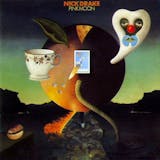Most Influential Artists in Music History
The history of music is rich with artists who have left an indelible mark on their genres and beyond. These artists have shaped not only the soundscape of their times but also cultural, social, and political landscapes. Below are some of the most influential artists across various musical genres, along with the reasons for their enduring impact.
1. Johann Sebastian Bach (Baroque Classical Music)
Influence: Johann Sebastian Bach is one of the most influential composers in Western classical music history. His mastery of counterpoint, harmony, and form is evident in works like the "Brandenburg Concertos," "The Well-Tempered Clavier," and the "Mass in B Minor." Bach's music has influenced countless composers and remains a cornerstone of classical music education and performance.
Cultural Impact: Bach's work exemplifies the Baroque era's musical complexity and expressiveness. His music has been praised for its intellectual depth and spiritual power, often used in both religious and secular contexts. Bach's compositions continue to inspire musicians and composers, contributing to the ongoing evolution of classical music.
2. Wolfgang Amadeus Mozart (Classical Music)
Influence: Wolfgang Amadeus Mozart's prodigious talent and prolific output have left a lasting legacy in classical music. His compositions, including "The Magic Flute," "Don Giovanni," and his symphonies and piano concertos, are celebrated for their melodic beauty, formal perfection, and emotional range. Mozart's work set new standards for opera, symphonic, and chamber music.
Cultural Impact: Mozart's life and music have become symbols of artistic genius and the Romantic ideal of the struggling artist. His ability to convey human emotion and experience through music has made his works timeless and universally appreciated. Mozart's influence extends beyond classical music to popular culture, where his life and works are frequently referenced and celebrated.
3. Ludwig van Beethoven (Classical Music)
Influence: Beethoven's work marked the transition from the Classical to the Romantic era in music. His compositions, such as the Symphony No. 9 and the Moonlight Sonata, are celebrated for their emotional depth and structural innovation. He expanded the scope and complexity of symphonic music, introducing new forms and harmonies that influenced countless composers.
Political and Cultural Impact: Beethoven's music has been associated with the ideals of the Enlightenment and the French Revolution. His Symphony No. 3, "Eroica," originally dedicated to Napoleon Bonaparte, reflects themes of heroism and struggle. Beethoven's personal struggle with deafness and his triumph over adversity have also made him a symbol of resilience and human potential.
4. Louis Armstrong (Jazz)
Influence: Louis Armstrong is often credited with transforming jazz from a regional phenomenon into a popular art form. His virtuosic trumpet playing, innovative scat singing, and charismatic stage presence set new standards for jazz performance. Armstrong's recordings, such as "What a Wonderful World" and "West End Blues," have become timeless classics.
Cultural Impact: Armstrong broke racial barriers in the music industry, becoming one of the first African American musicians to achieve widespread fame. His work helped pave the way for future generations of black artists. Armstrong's role as a goodwill ambassador for the U.S. during the Cold War further solidified his status as a cultural icon.
5. The Beatles (Rock)
Influence: The Beatles revolutionized rock music in the 1960s with their innovative songwriting, recording techniques, and eclectic musical styles. Albums like "Sgt. Pepper's Lonely Hearts Club Band" and "The White Album" pushed the boundaries of what rock music could be, blending elements of classical, Indian, and avant-garde music.
Political and Cultural Impact: The Beatles' influence extended beyond music to fashion, film, and social attitudes. They became symbols of the counterculture movement, advocating for peace and love during the turbulent 1960s. Their impact on youth culture and the music industry remains unparalleled, and their legacy continues to inspire new generations of musicians.
6. Bob Dylan (Folk/Rock)
Influence: Bob Dylan is a seminal figure in folk and rock music, known for his poetic lyrics and socially conscious themes. Songs like "Blowin' in the Wind" and "The Times They Are a-Changin'" became anthems of the civil rights and anti-war movements. Dylan's shift from acoustic to electric guitar at the Newport Folk Festival in 1965 was a defining moment in rock history.
Political and Cultural Impact: Dylan's music provided a voice for social and political change, addressing issues such as civil rights, war, and poverty. His influence on songwriting and popular culture is immense, earning him the Nobel Prize in Literature in 2016. Dylan's ability to continually reinvent himself has also made him a lasting figure in the music industry.
7. James Brown (Funk/Soul)
Influence: James Brown, known as the "Godfather of Soul," was a pioneer of funk music. His dynamic performances and rhythmic innovations, as heard in hits like "Papa's Got a Brand New Bag" and "I Got You (I Feel Good)," laid the groundwork for future genres such as hip-hop and R&B.
Political and Cultural Impact: Brown's music and persona became symbols of black pride and empowerment during the Civil Rights Movement. His song "Say It Loud – I'm Black and I'm Proud" became an anthem for African American identity. Brown's influence on dance, fashion, and music production techniques has had a lasting impact on popular culture.
8. Bob Marley (Reggae)
Influence: Bob Marley brought reggae music to international prominence with his distinctive voice and socially conscious lyrics. Songs like "No Woman, No Cry" and "Redemption Song" resonate with themes of freedom, love, and resistance. Marley's music continues to inspire and unite people around the world.
Political and Cultural Impact: Marley was a vocal advocate for peace and justice, using his music to address social and political issues in Jamaica and beyond. His Rastafarian faith and messages of unity and resilience have made him a global cultural icon. Marley's influence extends beyond music to fashion, spirituality, and social activism.
9. Fela Kuti (Afrobeat)
Influence: Fela Kuti, the pioneer of Afrobeat, combined traditional African rhythms with jazz, funk, and highlife. His music, characterized by complex arrangements and powerful lyrics, has influenced a wide range of artists across genres. Albums like "Zombie" and "Expensive Shit" are considered masterpieces of political music.
Political and Cultural Impact: Fela was an outspoken critic of Nigeria's military regimes, using his music as a form of political activism. His lyrics addressed corruption, human rights abuses, and social injustices. Fela's influence extends beyond music to inspire movements for political change and cultural pride in Africa and beyond.
10. Madonna (Pop)
Influence: Madonna has been a trailblazer in the pop music industry, known for her constant reinvention and provocative performances. Her ability to blend different musical styles and her influence on fashion and visual media have made her one of the most successful and enduring pop artists.
Cultural Impact: Madonna has pushed the boundaries of gender and sexuality in popular culture, challenging societal norms and advocating for LGBTQ+ rights. Her work has sparked important conversations about feminism, identity, and freedom of expression. Madonna's impact on music videos and live performances has also set new standards for the industry.
11. Tupac Shakur (Hip-Hop/Rap)
Influence: Tupac Shakur, also known as 2Pac, is one of the most influential figures in hip-hop. His powerful lyrics and storytelling ability, evident in songs like "Changes" and "Dear Mama," addressed issues of social injustice, poverty, and racism. Tupac's artistry and activism have left a lasting legacy in the hip-hop community.
Political and Cultural Impact: Tupac's music provided a voice for marginalized communities and highlighted the struggles of urban life. His activism and outspoken nature made him a controversial and impactful figure in both the music industry and society at large. Tupac's influence continues to be felt in contemporary hip-hop and popular culture.
12. Elvis Presley (Rock and Roll)
Influence: Elvis Presley, known as the "King of Rock and Roll," brought rock and roll to mainstream audiences with his charismatic performances and distinctive voice. Songs like "Heartbreak Hotel" and "Hound Dog" became cultural landmarks, and his fusion of country, blues, and gospel music created a new sound that captivated millions.
Cultural Impact: Elvis's influence extended beyond music to film, fashion, and youth culture. He challenged racial barriers by popularizing music rooted in African American traditions, although his appropriation of black music remains a topic of debate. Elvis's image and style have left an indelible mark on popular culture and continue to influence artists today.
13. Beyoncé (Pop/R&B)
Influence: Beyoncé is a contemporary icon known for her powerful voice, dynamic performances, and innovative music videos. Her work, including albums like "Lemonade" and "Beyoncé," has pushed the boundaries of pop and R&B, addressing themes of empowerment, identity, and social justice.
Political and Cultural Impact: Beyoncé has used her platform to advocate for feminism, racial equality, and LGBTQ+ rights. Her visual album "Lemonade" is celebrated for its exploration of black womanhood and its commentary on cultural and social issues.


